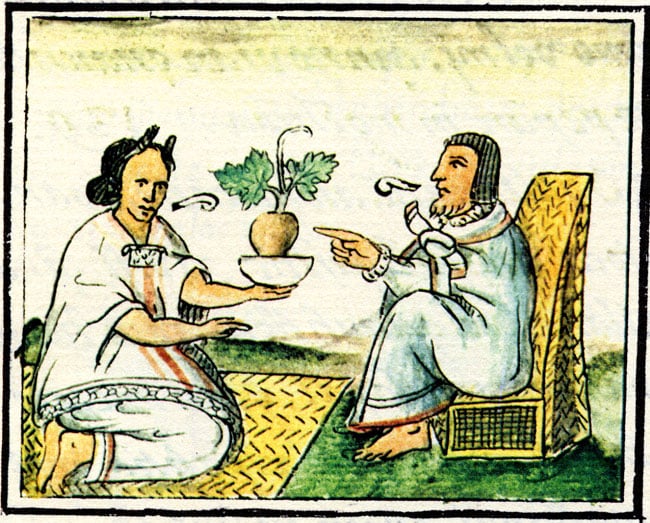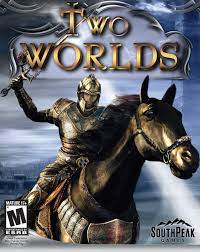 There are really two horse worlds. They are not completely separate, of course, but, in my view, if you’re going to understand the horse world – and the pleas and entreaties that come from it – you also have to understand the motivations of people who train, own, and take care of them. And, in that regard, there are two distinct camps (with a good bit of overlap, of course).
There are really two horse worlds. They are not completely separate, of course, but, in my view, if you’re going to understand the horse world – and the pleas and entreaties that come from it – you also have to understand the motivations of people who train, own, and take care of them. And, in that regard, there are two distinct camps (with a good bit of overlap, of course).
The first world is the world of what is somewhat benignly known as the “pleasure horse.” Folks typically own pleasure horses because, well, it’s a pleasure (at least, it’s supposed to be). Folks with pleasure horses tend to keep their horses for a long, long time (domesticated horses, if you didn’t know, have a lifespan of around 30 years on average). These horses become part of the family – and a fairly long-lived one, at that. A pleasure horse, even if it’s old or infirm, is still a pleasure – I mean, if you’re going to keep him around that long, you’ve presumably enjoyed it – and taking good care of him until the end of his life becomes something of an obligation. In this situation, horses are more like a family pet, albeit one that can be ridden or can pull a cart.
 While they are certainly completed different animals, pleasure horses are not to be confused with horses that perform in show disciplines with the word “pleasure” in them, (e.g., Western Pleasure). That’s a whole ‘nother kettle of fish – it’s one of the areas where the terms overlap. Pleasure horses are also not to be confused with what’s now known as the “performance horse.” Performance horses, still have soft muzzles and nicker when you bring them treats, but a good part of their value is based on their ability to do something well enough to make them financially valuable, not only to the owner, but also to other people. That’s not to say that these same people don’t care about the horses, by the way, but nickers and soft muzzles are not necessarily the primary motivation for owning them.
While they are certainly completed different animals, pleasure horses are not to be confused with horses that perform in show disciplines with the word “pleasure” in them, (e.g., Western Pleasure). That’s a whole ‘nother kettle of fish – it’s one of the areas where the terms overlap. Pleasure horses are also not to be confused with what’s now known as the “performance horse.” Performance horses, still have soft muzzles and nicker when you bring them treats, but a good part of their value is based on their ability to do something well enough to make them financially valuable, not only to the owner, but also to other people. That’s not to say that these same people don’t care about the horses, by the way, but nickers and soft muzzles are not necessarily the primary motivation for owning them.
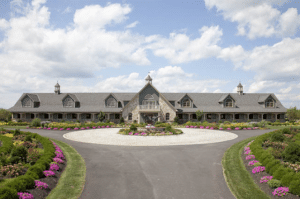 So, for example, while someone else may want to buy and/or bet on a particular performance horse based on how it runs/jumps/cuts, etc., that’s less often the case for somebody’s favorite trail horse. Performance horses, while they may be well-treated (in a way – we’ll get into that), fed, and kept in rather lavish surroundings (depending on circumstances, of course), have a value that is measured in things such as dollars, belt buckles, or blue ribbons, in addition to whatever other value they may have as an individual.
So, for example, while someone else may want to buy and/or bet on a particular performance horse based on how it runs/jumps/cuts, etc., that’s less often the case for somebody’s favorite trail horse. Performance horses, while they may be well-treated (in a way – we’ll get into that), fed, and kept in rather lavish surroundings (depending on circumstances, of course), have a value that is measured in things such as dollars, belt buckles, or blue ribbons, in addition to whatever other value they may have as an individual.
The fact that there are two horse worlds can become a real source of contention between them. The owner of a horse that’s valued because he’s a very special individual who makes his human’s life better just by being there may look askance at the owner of a horse that’s valued because he might be able to breed mares for years if he just wins enough races (or, conversely, might be the one that gets bred annually). On the other hand, someone who looks at horses primarily as an economic entity may scoff at the motivations of someone who would consider spending his or her life savings trying to perform a life-saving surgery on a retired 25-year-old companion. When horses are valued as individuals, money is not necessarily a primary motivating factor. When money is the primary motivating factor, the value as an individual may be lessened.
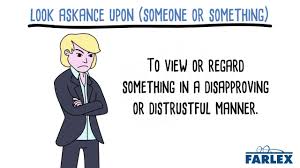 I’m not here to judge. But it’s curious to me that the selling of equine products and services is uniquely designed to appeal to both camps. For those with pleasure horses, the tag line is along the lines of, “You love your horse – don’t you want to do the best for him?” For those with performance horses, the tag line is more like, “Don’t you want him to run faster/jump higher/perform at his optimum/etc.” The general idea is that no matter what you’re doing, and how well you’re doing it, you could probably be doing it better. Tisk, tisk. But I digress.
I’m not here to judge. But it’s curious to me that the selling of equine products and services is uniquely designed to appeal to both camps. For those with pleasure horses, the tag line is along the lines of, “You love your horse – don’t you want to do the best for him?” For those with performance horses, the tag line is more like, “Don’t you want him to run faster/jump higher/perform at his optimum/etc.” The general idea is that no matter what you’re doing, and how well you’re doing it, you could probably be doing it better. Tisk, tisk. But I digress.
Even though the marketing is largely the same (essentially, “You could do better”), these are two very different worlds. And, to a certain extent, these worlds don’t really have a whole lot to do with each other. Nonetheless, it seems to me that for both worlds, horse medicine at the moment is being driven by the idea that “more” medicine is “better” medicine.
Here’s what I mean. Let’s use you as the patient. My guess is that, at this point in your life, you’re more analogous to a pleasure horse (I know I certainly am). Let’s say you’ve twisted your ankle a bit and it’s kind of sore. You go to the doctor to get it examined. Does your doctor:
- Tell you to stay off it for a couple of weeks and let it heal, or

- Tell you that you need X-rays, a bone scan, and an MRI, and then recommend injecting the affected ligament, laser, magnets, and shock wave?
Conversely, maybe you’d like to lose some weight. Do you:
- Cut back on your calories and try to exercise a bit more or
- Consult a nutritionist, weigh all of your food, and get a special watch or app, as well as a personal trainer?
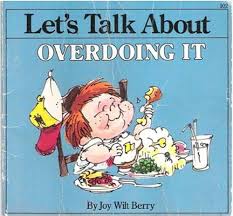 My guess is that in each case it’s more likely you’re going to get #1, unless, perhaps, you’re an Olympic or professional athlete (perhaps). And, if you get #2, it’s great to have all of the attention, but you’re also probably getting a bit overtreated. Plus, when it comes to injuries, if you get treated and you don’t give yourself the proper rest because your injury feels better after treatment, you might just hurt yourself and make things worse. It works the same way with horses.
My guess is that in each case it’s more likely you’re going to get #1, unless, perhaps, you’re an Olympic or professional athlete (perhaps). And, if you get #2, it’s great to have all of the attention, but you’re also probably getting a bit overtreated. Plus, when it comes to injuries, if you get treated and you don’t give yourself the proper rest because your injury feels better after treatment, you might just hurt yourself and make things worse. It works the same way with horses.
When you think about the horse world in this way, it sets up two points for you to consider (one for each group):
- The treatments given to performance horses often aren’t all that relevant to pleasure horses because while they’re the same animal, the expectations are different
- When you’re just trying to affect or continue performance, you’re sometimes just setting up the horse to get a more serious injury: sooner or later
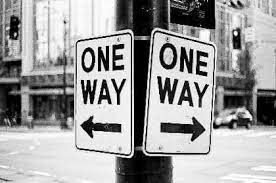 The problem – at least if you’re a pleasure horse owner – is that most of the research and attention is paid to the performance horses. Of course, medical research is important, and newer and better treatments are certainly needed for many conditions. However, the horse world is littered with “performance horse specialists” and therapists with all sorts of approaches: pulsing magnets, deep tissue massages, shocking waves, those who work bodies, pin pushers, joint crackers… you name it. All of this is done in the name of helping a horse perform at his “best” – even though the horse really has no idea about the point of what he’s doing at all and there’s little evidence that most of it does much anyway,
The problem – at least if you’re a pleasure horse owner – is that most of the research and attention is paid to the performance horses. Of course, medical research is important, and newer and better treatments are certainly needed for many conditions. However, the horse world is littered with “performance horse specialists” and therapists with all sorts of approaches: pulsing magnets, deep tissue massages, shocking waves, those who work bodies, pin pushers, joint crackers… you name it. All of this is done in the name of helping a horse perform at his “best” – even though the horse really has no idea about the point of what he’s doing at all and there’s little evidence that most of it does much anyway,
So, in my view, most of the horse owners in the world – those that have a horse (or three or four) that they enjoy riding and taken care of – aren’t being served well by the performance horse world at all. If, to everyone’s dismay, your pleasure horse hurts his tendon, there’s really very little need for you to do serial ultrasounds, finance the latest “promising” treatment du jour (PRP, stem cells, and the like), and then run off to the water treadmill, when all of those things really haven’t been shown to ultimately do any better for the horse than the time and the TLC that you’d be more than happy to give him anyway. You can treat your horse well and also not be required to take out a second loan on your house.
 The “best” care doesn’t come from treating your pleasure horse like a performance horse. In fact, it you add up all of the travel, the small stalls, the constant, repetitive stress on tendons, joints, bones, and ligaments from jumps, sprints, turns, piaffes, etc., and compare it to hanging out in a turnout and getting ridden a few times a week, there’s nothing really “ideal” about the way a performance horse is treated at all: certainly not for the horse.
The “best” care doesn’t come from treating your pleasure horse like a performance horse. In fact, it you add up all of the travel, the small stalls, the constant, repetitive stress on tendons, joints, bones, and ligaments from jumps, sprints, turns, piaffes, etc., and compare it to hanging out in a turnout and getting ridden a few times a week, there’s nothing really “ideal” about the way a performance horse is treated at all: certainly not for the horse.
I think it’s important to be aware of the two horse worlds. I think it’s important that you keep your expectations reasonable, as well. While a 23-year-old horse with a bit of arthritis may not be the next world champion whatever, he may be a perfect companion to brush and love, and he’ll probably happily carry you down the trail (perhaps with a little bit of pain-relieving medication). You know he’s doing pretty well, so are you, and everyone is (or at least should be) happy.
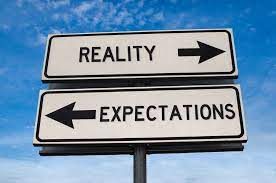 On the other hand, if you are in the performance horse world, please keep in mind a few important things:
On the other hand, if you are in the performance horse world, please keep in mind a few important things:
- More medicine isn’t necessarily good medicine
- The “newest” isn’t necessarily any better than the tried-and-true
- Rest and recovery are usually more far important than more training in the long run
- Equestrian sports are the only team sport of which I am aware in which half of the team doesn’t care at all about how the team does
Keep the two horse worlds in mind when it comes to your horse. Maybe you’ll even be happier. I mean, that’s the point of all this, isn’t it?






